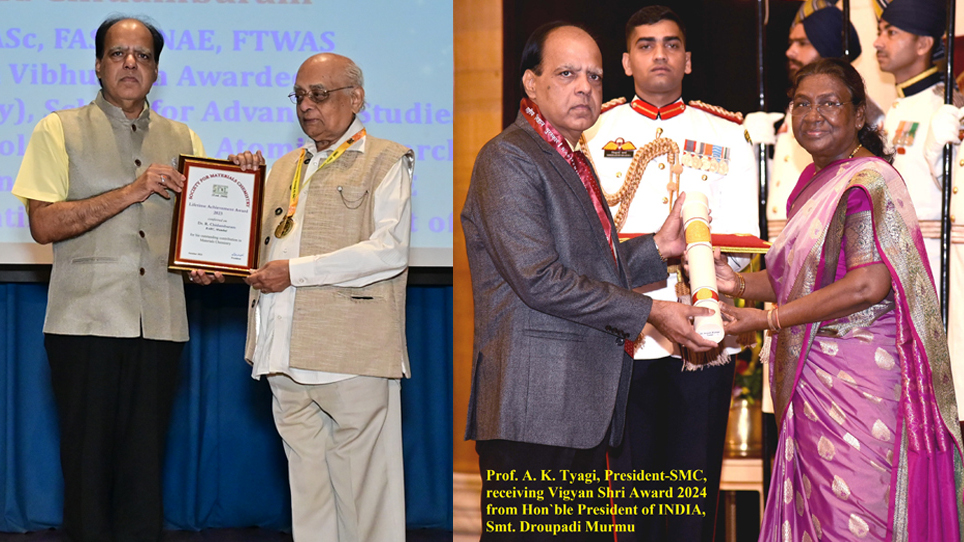
Science, Systems, Success: Interview with a Distinguished Scientist
SS: Good Morning sir. This is Swarnendu Saha, your host for the day. Welcome to IISER Kolkata.
AKT: Thank you Swarnendu. Thank you for having me here today.
SS: So, my first question is - how do you see, as a teacher and a researcher yourself, the changing nature of science and research education in India ?
AKT: We have a heritage and age old tradition of strong education in India. Then, with the coming of western, European education newer universities were established in the presidency cities like Calcutta, Bombay and Madras, and then in Allahabad, Lahore etc. I myself come from one such conventional university only. There also things have changed rapidly. However, with time, these institutes were not able to cater to the growing needs and aspirations of the youth student community of the country and different systems of education institutes like IITs and AIIMS started being established.
Things have rapidly changed in premier institutions also. First and foremost, you are yourself from IISER Kolkata. You know, in the last two decades or so, the government has set up several new premier institutions.
During my time, mainly we had five old IITs and some AIIMS like this only. But now we have got several IISERs. The number of IITs has also gone up to 20 plus. So is AIIMS, we now have 23 AIIMS. Several IITs have come. So the research ambience has changed there as well. Right from their UG program to PG program, many of them offer integrated MSc. So integrated MSc has got components of BSc as well. The students are exposed to state-of-the-art laboratories, which may not be the case during our time, 40 years back or so. So I see a positive development all over India, be it conventional universities or central universities or premier institutions.
I do see an upward trend in the research component. Now students are much better exposed to research compared to earlier days. And this is going to increase only in coming years. So this is my response to this question.

SS: Our Dean of Academic Affairs, when our previous batch was going out had shown a study that over years, the number of girls graduating from IISER Kolkata is quite low compared to the number of boys. This part of the country - Kolkata and the surrounding region, doesn’t suffer significantly from casteism or other similar factors, so I don’t think that acts as a barrier to discourage girls from joining the institutes. The situation is particularly dismal in subjects like mathematics and physics. From the point of view of a teacher, how do you see this?
AKT: Yes, first and foremost, I should really appreciate this question. For that matter, the number of female students has increased in the last several decades. Every decade, you will see that the number of female students in premier institutions and university categories also is going up slowly, but definitely steadily.
So the situation is going to improve in the coming years. Now coming to their preference for certain subjects, you will be surprised to know, even during my time, 40-45 years back also, it was more or less the same. Maximum girl students were opting for biology.
Second was chemistry, followed by physics, and mathematics was least preferred. And not to make this mistake, never ever, that they don’t have temperament for mathematics and physics, I will not agree with this argument. Some people may make this kind of argument also.
But that’s not correct at all. In fact, girl students are quite well equipped to handle mathematics complex problems as well as physics complex problems. Somehow, for some other reasons, either because of family, they see family members, or because of other reasons, they have more fascination for biology followed by chemistry.
Traditionally, it is true abroad also. So I will not be able to pinpoint any strong reason, except that probably this also goes by word of mouth. Sometimes many things happen by word of mouth.
A group of students from the present generation may see, say 10 years back, their family members or their other neighbors and all, what they did. And they realize that these people have done MSc in chemistry or MSc in biology. So they also get tempted. So this could be one reason, an indirect reason, but there is no direct corollary which one can establish for not finding enough number of girl students in mathematics.
SS: No, see, as a part of this question, the fact is that if biology as a subject is very intensively fieldwork based and weight lab based, yes, these days computational biology has also gained space and that’s required, but biology itself is a very field based, very weight lab based. In contrast, we don’t require mathematics to go in the field and then do some calculations. If they have that zeal and temperament with a pen and paper, and now it is a high competition, they can do stuff. So had that been the requirement of physical abilities, though I don’t mean to say any other thing. But anyways, physical abilities or safety or anything first, the person who has to go for other forest trips or field trips or who has to do a direction of frogs, I mean, or butterflies, is more prone to take mathematics because it’s a much safer, much calmer life. So how…….
AKT: No, no, no, there can be counter opinions on this discussion. I would say that excites them more, going to a garden to make herbarium. I know herbariums, I don’t know whether you know or not, herbariums were made by students. In BSc we used to make herbariums. We had to go to the botanical garden and make some leaves, press them, put them into paper, then they used to write the botanical names. I think all these things excites young students in general and probably female students in particular.
Maybe, it is not the comfort of sitting in one corner on a desk and doing mathematics that would attract her. That has its own charm. But in my opinion, by nature, girls are more focused, that is a universal fact.
Multiple tasking wise also they are superior. I think there are well defined reasons for this. So probably it is this ability of having tremendous focus, I am not saying boys don’t have focus, but in comparison my personal assessment is that girls definitely have more focus and perhaps less diversion compared to boys.
Again I will have a disclaimer, that not that all the boys have diversion, but relative fraction could be more. That is what I think you also, your generation also will agree. These could be the reasons that they want to go for these kinds of subjects which are much more diverse compared to sitting in a corner.
I think multiple tasking ability is one reason and fascination for colors, fascination for good smell, you know fragrance which a botany student is exposed to compared to mathematics student could be one reason on lighter side.
SS: My next question is - have you ever felt, the number of PhD students from and in India has seen a rise or fall ? You have connections abroad, you have been abroad, means let’s assume East Asia, mainly Europe, Australia and US, this part. There is a much more fraction of Indians doing a PhD compared to the other group that I mentioned. Have you ever felt that or never?
AKT: No, no, no. I think it is not correct to give any geographical angle to those PhD students who are following. I think it is just a question of the inclination of one student.
Chinese, for example, do a lot of PhDs. I think the maximum number of students come from China. So one may again counter argue that it is maybe an Asian trait, that’s not correct here.
I think a number of students are there in Germany as well. I have been there several times, and they also have a good number of PhD students. So I don’t think it will be correct to pinpoint any regional preference and in India of course I must say that within India there could be some reasons people from the eastern part of the country have more liking for science subjects and for research compared to let us say northern part. That again does not mean that northern part students do not have.
I myself come from that part of the country. So I think it is just some aberration that could be there but a little bit of difference definitely could be there. You yourself are from West Bengal if I am correct.
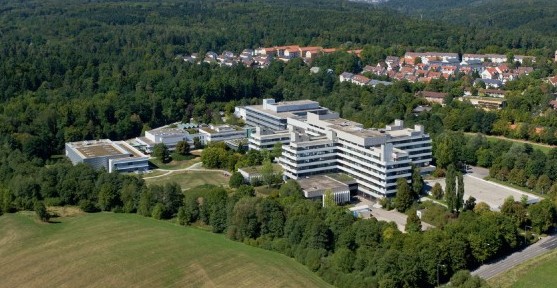
SS: Kolkata.
AKT: So, people from this part of the country definitely have a fascination for basic sciences.
SS: No, why I asked you this question is that I have seen some of my friends, immediate seniors go abroad for PhDs. The fact is that one of my close friends has always got this, in a lighter mood, that you are a young kid doing a PhD, why are you in such a hurry? And their lab is filled with mainly Indians or Asians rather than Germans. She is doing her PhD somewhere in West Germany towards the border of France and Switzerland. So there is a pattern. They have said that in the US also, they are more prone to go to work at an earlier age compared to Indians who prefer to stay more as a student as long as possible doing a PhD, doing post-doc. From that point of view, I ask this question to you.
AKT: I understand. Also let us not forget that India and China are two of the most populous countries in the world. So their absolute number will always be more than the number of any other country.
But you have to see the number divided by population. Then I don’t see that there is a vast difference. After all, the population of these countries, many of which you are referring to, is equal to that of a single state in our country.
So absolute number wise, Indians and Chinese definitely will be dominating, I believe, in any field.
SS: Let’s move to the next point. About a few months ago, the Prime Minister of New Zealand was in India for the Raisina Dialogue talks. So that’s a political, geopolitical stuff where the government has called other guests, other dignitaries, other government officials. My point is that the New Zealand Prime Minister was a guest of honour and in his speech he has said that India is the second largest producer and supplier of educated laborers to New Zealand. Here, my question is - As a person who is involved in human resource development, how do you see this comment?
AKT: This is a very encouraging comment and I am pretty sure not only the Prime Minister of New Zealand, but many other heads of the states also would echo the same sentiments.
Because definitely we are producing a large number of highly educated young generation colleagues here. And many of them go abroad and contribute to their economy and they contribute to our economy also. You know India gets a very decent amount of foreign exchange, I am not able to quantify exactly.
By remittance. So these people contribute in a significant way. And Indians are there, not only educated, other spectrum of the workforce also, Indians traditionally have done very well. They are hardworking people. Let us admit that Indians by nature are hardworking and they are respectful to the system as well. All these things are there which any employer would like.
There is a reason for the large number of Indians, because the Indian diaspora is probably second largest. If I am correct, you may cross check it incidentally. After China, probably our diaspora is the largest in the world.
SS: Yes. But don’t you think had they been in India and their ability, their capabilities have been in workforce in India, India would be far more better benefited than benefit it has from the remittance?
AKT: There is a truth in your statement that if they were full time in India, definitely their contribution to our economy would be more. Obviously. Because here they spend more time towards their employee and department.
I fully agree with you that compared to working abroad, they only have remittance kind of support to the economy. If they are full time here, definitely they will better integrate with the economy. But at the same time, let us remember that we talk about global order these days. We are all talking about global villages. The entire world is one and borderless trade we talk about. So in such a scenario, it is not a bad idea in my personal opinion to see our fellow citizens go to different parts of the world and do some good work there. Then when they come back, they become much better equipped to handle the problems of the nation. So it is not a bad concept at all. If they go there, they may settle as per their choice or they spend let us say a couple of years, come back.
So either way, the country is the gainer. Don’t think that country is the loser.
SS: My next question now to you as a scientist, exactly what is your domain of research?
AKT: In my domain of research, I started my career in solid state chemistry. So we are into the development of different types of materials for various applications. In my group, we work on fundamental science. We also work on applied science. And considerable work has been done in the nuclear sector as well. So these are my 40 years of research in the most brief way I can summarize. So basically development of materials, processes and products is something I have done during my career.
SS: So your lab is in BARC or HBNI?
AKT: No, HBNI doesn’t have any lab. As I mentioned, it is a university degree awarding university. It is a central office. Labs were always in BARC only.
SS: So you now balance your work between the two places?
AKT: No, now I am a full time employee of HBNI. So BARC I go only occasionally.
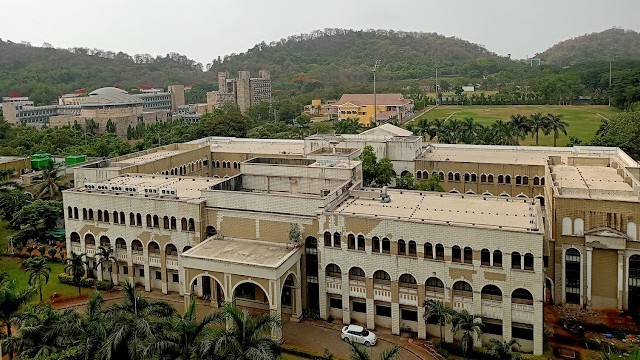
SS: So your lab runs on its own?
AKT: No, no, no. No lab can run on its own.
SS: How does the system work then? Because in IISER, I see the same professor who is the director or dean. Sometimes they do administration work and the rest of the time they are teaching or research purposes.
AKT: No. BARC is a different system altogether thanks to Dr. Bhabha’s grand vision. So here, you know, we have got our younger colleagues. So even if one person retires or he shifts somewhere else, projects continue. So our projects don’t depend on one or two individuals. So we have got the next generation of colleagues who take over. This system works extremely well, especially for mission mode projects. This kind of system which Dr. Bhabha envisaged almost 70 years ago. It is a time tested system. It works very well. So I may or may not be around. Someone else will take over and carry forward the pattern.
SS: Okay. So as in institutes like IITs or IISERs where the PI of the lab is there and he is the top boss of that particular lab and everything runs under his or her guidance. That doesn’t work with the BARC model.
AKT: No. In BARC, we have some people who work in this fashion also. Very small projects they will work on separate individuals. But primarily, remember, ours is a mission mode organization. So we work on large projects which are not, you know, dependent on one person coming and going. These projects are very regularly formulated and there are a battery of people who work on a given project in different age groups and so on. And we also plan.
We know now when we are going to leave the organization. So a couple of years before that, we start to think about who will take over this particular project. So the system is time tested.
SS: As a scientist, what do you feel is your greatest contribution as a scientist?
AKT: This is a question for which the answer can be very long, especially for me who has spent so much time in science. I will give some answers. Of course, first and foremost, an organization like BARC provides a lot of opportunities. You can do different types of work. I think this is an organization where there is a scope of contributing to many projects of national importance. That is something which definitely I was part of. And it also allows you to do basic research. You can develop products for applications. You can also develop futuristic materials. So my journey, I would not hesitate to say, was quite fruitful and enjoyable.
SS: And which part of the research do you think is your greatest contribution?
AKT: As I mentioned, I am a materials scientist. So development of materials is something which definitely I can say is my… If you ask me a single line answer, development of different types of materials is my contribution which I am proud of.
SS: Currently, what research are you doing?
AKT: Yes, as I mentioned that I shifted to HBNI. So some research I continue, of course, with the help of collaborators. And I continue to have students who are working in BARC. I must thank the BARC administration for permitting me, for permitting these students to work in BARC.
SS: And how do they work? Say, they work under your guidance.
AKT: Of course. I am the guide of these students.NAnd then some other mid-career colleagues are co-guide. So that they can get day-to-day guidance.
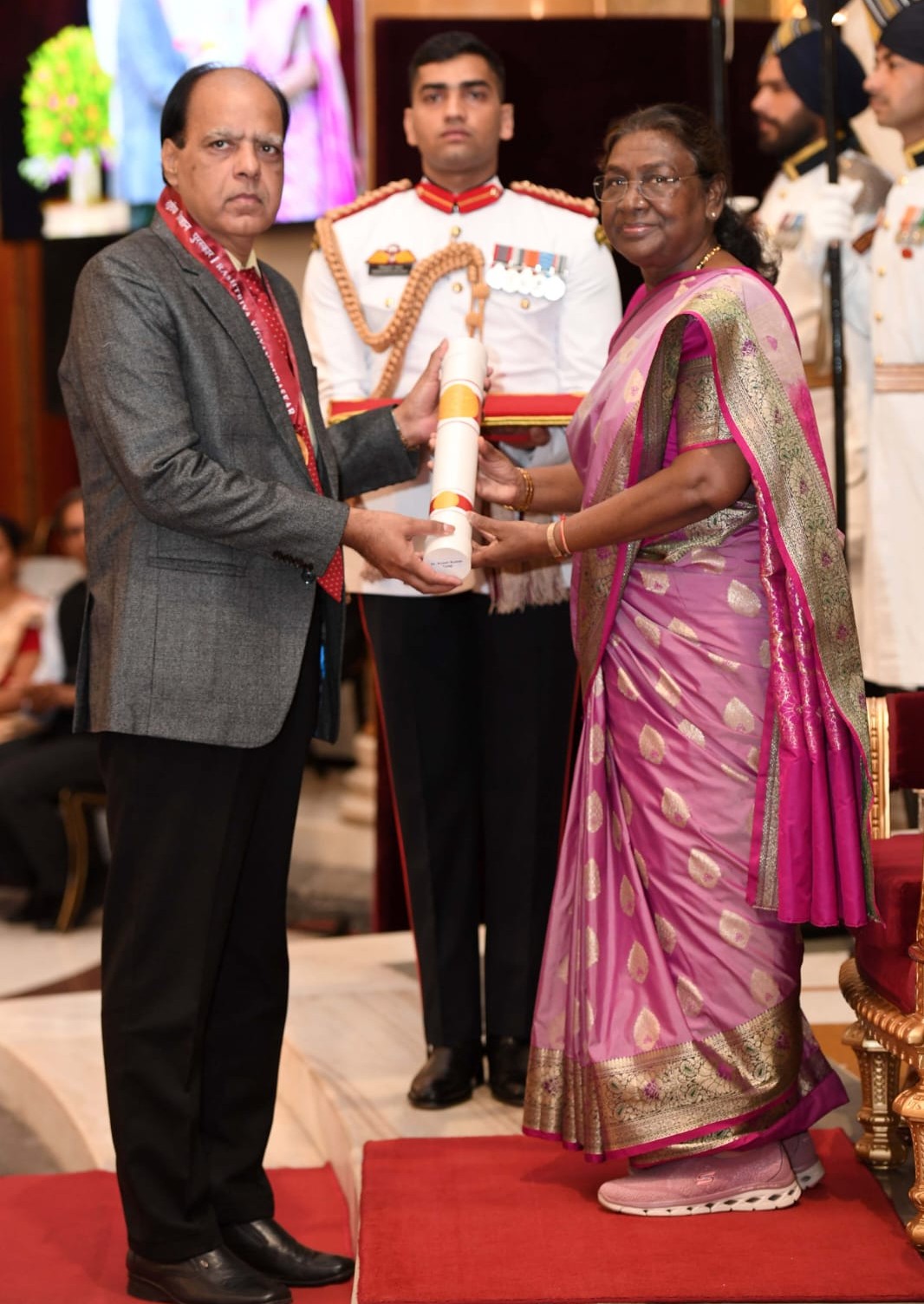
SS: So you are the PhD guide of them. PhD guide of them.
AKT: Yes. And for these students, as I mentioned that I have also requested some mid-career colleagues to act as co-guide.
SS: Have you ever thought of joining institutes like IISERs or regular universities, shifting from BARC?
AKT: Frankly speaking, the answer is no. Because right from the beginning, I was busy and working at that satisfaction level. Job satisfaction level also was high. And the department allowed me to work on varied types of projects. So I think that thought of shifting never came to me.
SS: How much independence do you have as a scientist?
AKT: This is an organization where nobody has any excess control over others. This organization gives you enough independence within the confines of rules and regulations. Now, that is without saying, independence comes with responsibility also. You agree with me that more independence, more responsibilities. So with this concept, I would say this is a very nice organization.
SS: No. My point is that during chats with my professors, be it my department or any department, all are my professors, teachers. So they have said that in these institutes like IISER in general or IISER Kolkata in particular, what danger is that they don’t have any top boss on them as far as research is concerned. So it is they who decide what to do, how to do it. Yes, responsibility falls and then they have to acquire the funds and all. But it is their thing. But in BARC, you have been told that projects go on. You only join that at a point in your career. You add to it. It adds to you and then you leave. The project still goes on. It is like a river. You just join somewhere and leave it. So from that point of view, I ask this.
AKT: Your question is well taken. See, both the models have merits and demerits. I am not saying. So this model works very well in academic institutions.
SS: Which model?
AKT: The model of independence in terms of selecting problems and getting funds from funding agencies, which you mentioned in IISERs and IITs. This model, I am not denying that it is bad. Never ever. But the kind of projects in which DAE is engaged in need this kind of arrangement where we have large projects, mission-oriented projects. So there we need to have a certain hierarchy also where one can get work done from others. So again, one more thing I say is that when you have responsibility for large projects, you also need to have authority. Higher responsibility also calls for some authority as well. So there are different models and both are required in science. Depending upon organization, both the models are required.
I am not saying that one should have only the mission mode kind of model or the other model. Depending upon which organization you belong to, both the models have to exist.
SS: My next question as a student is, if someone wants to join BARC, what kind of preliminary training from their end they should do? And what are the requirements for joining BARC?
AKT: Yes, this is a good question. See, there are two ways of joining DAE. One is after MSc - the pathway I used to join.
After MSc, the main entry point is training school. I must share with you that in the training school of BRC, in basic sciences, in physics, chemistry and biology, we have quite a good number of TSOs, training school officers right from early days from the West Bengal area. So, people are lacking, as you also know that they are lacking for basic sciences.
So, a good number of our brand students come from West Bengal. For cracking training school, there are two things. One is that you have to appear in a national level examination or you have some valid grade score.
That way you can come for the interim directly. For cracking written tests, you should be thorough in all subjects of chemistry. Your questions will come from different branches of chemistry.
Physical, organic, inorganic, radiochemistry and you know, radical chemistry and so on. Then, once you qualify the written exam, you are called to Mumbai for an interview. The interview is held in Mumbai. Written exams are held all over India. Kolkata is one of the biggest centers for our written exam. In an interview, the interview is a different ball game.
In an interview, the written exam and interview are two different things altogether. If you do well in the written exam, it does not mean you will do well in the interview also. The interview panel goes quite deep and you need to really have good concepts here.
So, for interviews, I always say the best way is to know everything and something of everything. You understood? It means a couple of topics, some 8 to 10 topics, you must be very thorough.
And for other topics, you should have good knowledge. So that you can face questions from a wide range of topics.
SS: So, it’s a strike and balance between jack of all trades and master of some.
AKT: Not none, but precisely. And this applies when you get a job also. It’s very important to have a wide knowledge base, but deep in your domain.
You are deep in your domain and wide otherwise. And otherwise, suppose if you do PhD, then also there is a possibility of joining DAE. We have a scheme called the KSKRA Fellowship - KS Krishnan Research Associate Fellowship, KSKRA Fellowship. There one can join after PhD, but the number of positions is a bit small and frequency also is not annual.
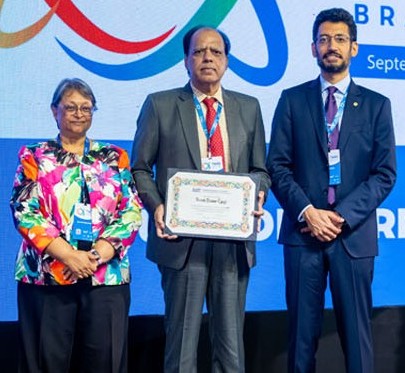
SS: Okay, my next question is that as a scientist in BARC or DAE, how much fund do you get for yourself? Yourself means your personal research or your any either we take data in ARF funds. And are you allowed to go Europe for, Europe means abroad for conferences and stuff like that?
AKT: Yes, Of course. I think our department in general, and BARC in particular, has schemes for sending people abroad. We have a special scheme where one can go abroad once every 4 years.
SS: Once in 4 years?
AKT: Yes. Once in 4 years fully funded and partial funding anyone can get. So, I have myself gone to many, many conferences abroad.
SS: But, what if you want to attend one each year.
AKT: No. Let us admit one in each year is not possible in other institutions also. After all, it costs a lot of money to the treasury. So, in my opinion, one conference every year is fully paid by the government, I think it is slightly on the higher side of expectation. You should get some annotations which are paid for by others. I have got a good number of annotations in my career.
I mean when I was mid-career and where my visits were at no cost to the department.
SS: The external?
AKT: Yes.
SS: They funded?
AKT: They funded everything, my stay, my travel, everything. So, you should come to that stage that everyone will invite you, people will invite you and offer you everything. As I said in the earlier part of the interview, to expect money from the government all throughout is equivalent to expecting money from father for whole life. A day should come when we support our father.
SS: So, at which point of the career should we expect more from the government?
AKT: Asking early career to mid-career, definitely you should expect more funding from the department. But after mid-career when you become senior, mid-career means let us say about 40. So, for the first 15-20 years I am sure people will not offer you full paid visits.
And at your age definitely you must look for support. But as you grow further once you are in your mid-40s or so, your situation should definitely be such that anybody should be proud to invite you at low cost to your department.
SS: Today’s BSc or MSc students do some bit of research as a part of their curriculum or internships. Let us assume a student has gone to you for some MS thesis or internship and that person has done a considerable amount of work. So, when he returned to his own institute, he maintained contact and there were ocassional meetings and the project is finally successful and they got a paper out of it. Now that student wants to go abroad to present his work. In that case, do they have any funding for those students? If yes, what are those? Because those are not readily available from the schemes from CSIR, DST, etc. If not, do you think there should be schemes to support those then? And in the process, how?
AKT: See, this is also a very good question. This is almost a policy type of question. Let us have one thing that a student who is in MSc, after BSc, he is in MSc part 2 - let us say, second year.
Let us assume I am that. Okay. So, at this age, I think you are too young to, you know, make a presentation in a very big international conference.
Maybe you can make a postal presentation. So, for that, there are exchange schemes here.
I fully agree that MSc students also should be exposed to a foreign country to an overseas work culture. But for that, this is not the only model where, you know, they do some research, they want to present a paper. That comes as, you know, you have rightly pointed out to senior PhD students. Usually, SRFs are given funding for going abroad. In HBNI also, incidentally, we have got a scheme of funding each and every PhD student to go abroad once during his PhD. Fully funded. But that is done after three years are over. After that only when they are in fourth and fifth year, then only we give them funding and for the right reason. Because a very young person, if first year PhD leave alone MSc, may not be, if not almost, may not be mature enough to, you know, to withstand that kind of, you know, scrutiny is not the right word, that kind of, you know, question answer session, this, that, all. And his data also may not be sufficient.
In six months of internship as an MSc student, I don’t think I can have that kind of data that becomes presentable in international conferences abroad. But for young MSc students, the government has got schemes of exchange visits.
SS: What are those?
AKT: So, let us say, they are bilateral agreements in other countries. The government sends a group of young students to Europe to interact with Nobel laureates of the given year. So, all these schemes are there. So, DST has a number of schemes for MSc students also. But our MSc student number is very large. To expect that each one of them will go also is, you know, beyond the possibility of implementation. But at the same time, their time will also come. My first visit abroad for a post job was in 94. Eight years it took. Doesn’t matter. And, it was not too long. It was worth waiting. After 80 years, I was mature enough in terms of my knowledge, whatever I had those days. My PhD is over. I got two promotions. I was, you know, reasonably mature enough, strong enough to do work internationally. So, I think too early is also not desirable.
SS: Have you been to the North East?
AKT: Manipur and all? I have had a very sincere plan for the last several years. And I have a very close colleague who comes from Manipur. So, he is promising me to arrange a visit to Manipur University and all that. Somehow it never happened. So far I could not go. And this is against my wish. I have been thinking for at least 10 years of being deported. So, I do plan in the coming years. I have very strong working relations with several people in the North East region.
SS: Have you ever felt that the representation of people in science from the North East is not up to the mark?
AKT: No, there can be many reasons for this. But now it is really progressing well. And I see North East students are really doing well. I may share with you my own experience with these students. They are very hard working students. Extremely hard working students are from this area. My own colleague comes from Manipur. And, you know, you can bang on him for anything. This kind of commitment is there. So, in the coming years they are definitely going to shine. And if assuming that there is under representation of these people as of today. That won’t be the case forever.
SS: No, the fact is that many times, if not my personal opinion. Many times in various sectors, we feel our statistics do come out. India’s North East remains under-represented. They may have to work harder to be in the same place where I am. Had there been more access to resources and facilities. They could have been more at a better place. Every state to the West of West Bengal, and including Bengal has one IIT. And, the whole of North East has one IIT. I accept every, or almost all the north-eastern states I believe have one NIT. But again, one medical college in the whole of Nagaland. And that too has been established very recently. And the medical colleges in some other states had to reserve seats for the students of other states. So do you feel or would like to say regarding this. .
AKT: I will answer very briefly like this. While all you say could be correct. But believe me, the Government of India is very serious on this matter. North East states are definitely giving a lot of consideration. And a lot of improvement will happen in the coming years. So not that the Government is turning a blind eye on this issue. Definitely not. The situation is going to improve. They may have geographical disadvantages. But this disadvantage cannot stop them any longer. So there is a sign of reversal of this trend. Be assured in the next 10 years or so. You will see their very decent representation everywhere. And I may also say in my group, in BARC in our division. We invite a number of faculty members from the North East region. And a large number of young PhD students. They come for our conferences from the North East region. And this, I will ensure that it is going to increase only. In our conferences especially. So there is an upward trend.
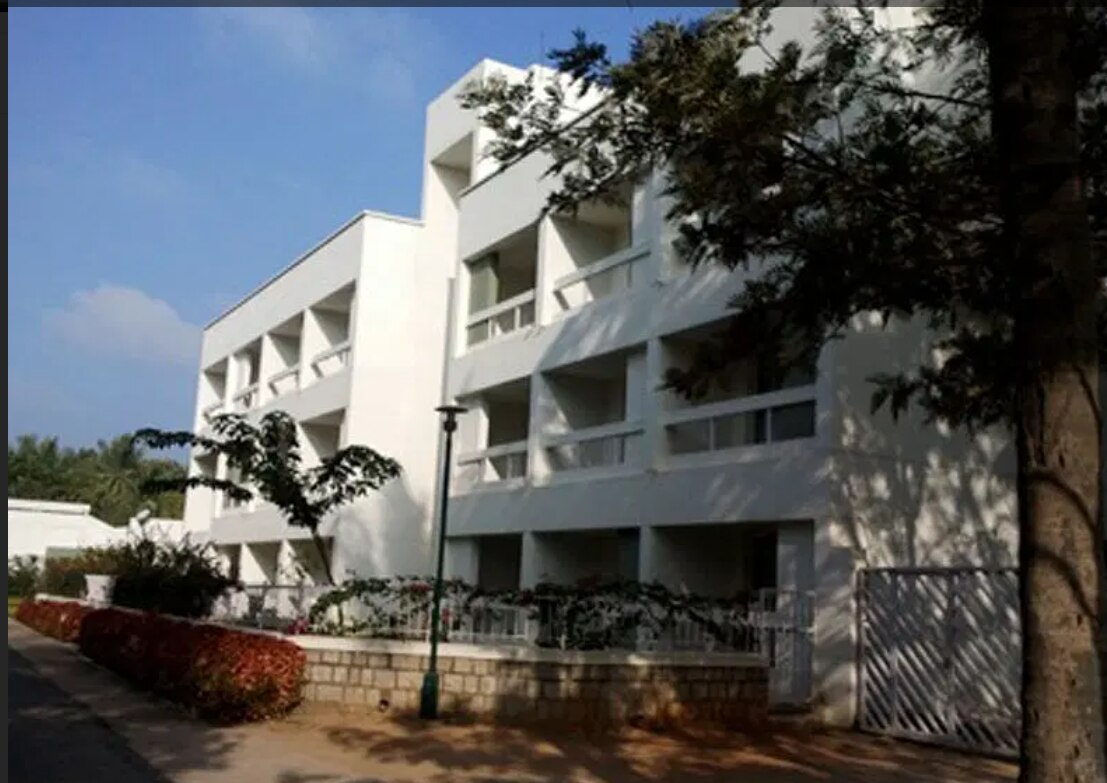
SS: Okay, so we are more or less towards the last part of the interview. So how do you see the changes in your times? And how do you see the changes in our times?
AKT: Changes in what? Changes in the development of science and how the students look towards academics ?
SS: I am from Bengal. My father is a businessman. When my father and mother were young, there was a zeal towards engineering. But people did take up basic sciences, as well as other subjects - in arts and science. Today, premier institutes in Kolkata, often less than 10 students got enrolled in a class that can accept 30 to 40 students. And this is right in the main city, and not in some remote part of the country. On the other hand, the number of private engineering colleges is increasing. In your personal view, how do you think things have changed, compared to your times, your student days.
AKT: From my studentship days things have definitely changed. But let us also admit - Now there are many more options. I remember in the early 80s. When I was in B.Sc. or so. That time there were hardly any engineering colleges. We had 5 IITs. And we had some old engineering colleges. You could literally count all on fingers. Now, every nook and corner. You will see engineering colleges.
So, today;s young students and their parents have a much wider option compared to let us say in the 70s, 80s and even 90s also. This is one development which has happened. I am not saying good or bad. But it has happened. And in a way it is good also.
Now, coming to students not opting for basic sciences. What you are referring to is legacy. West Bengal is a hub of legacy colleges. And universities. Some of the oldest colleges and universities of Asia are set up in West Bengal. In 1857, if you know, the three universities of British India were University of Calcutta, University of Bombay and University of Madras . Before that we had the Hindu College, what is today known as Presidency University. Then Serampore College in Hooghly, outside the ambit of British control but other European powers. Independent India saw the rise of ISI. They are also Shivpur B.E. College, today known as IIEST. They are all very very old colleges.
So, in my opinion, the students not joining does not always mean these colleges as 40 years back does not put them on the wrong side. Of course, they also have to compete. Now, you cannot, you know, force anyone to take any particular stream. Suppose I have got the option of 10 dishes in front of me. I may choose the two best of. As per my liking. But if I have only three dishes. In front of me. Then you can imagine the probability of any dish to be picked by me is very high. So, this is the change in higher education also. Now, more options are available. And that’s why students and parents. Also have a lot of other avenues to be explored which may not be the case during my time or generation before.
But definitely it is a matter of concern if many students are not going for basic sciences for MSc and other basic sciences degrees. We were discussing it with faculty members also. That is a trend. Could be in other parts of the country also. This is a matter of concern.
And definitely one has to work out and modify the syllabus in teaching. There are many students who could not come to MSc. Employability concerns are a big parameter to be taken care of these days. So, probably parents and students both think engineering makes them more employable. And that may be correct also. Since I am not an engineer. I cannot answer this question with emphasis. But this, you know. Let us admit. One has to take a job, support himself, parents and family. This is bound to happen. Which is going to come. So, it is an employability driven concept also. So, our MSc courses also have to evolve.
SS: And another question. Before I end. How do you see the influx of politics or student politics in the education system ?
AKT: See, whenever they are human beings, irrespective of the age group, they will assemble. There is a social fabric. There is a difference between homo sapiens and other species. That is true thousands of years back also. They could assemble. They could coordinate. Homo sapiens has survived a lot of crises. Recently you have seen COVID. Because of this. Coordination and cooperation. So, wherever there are a decent number of people, who are educated, who are ambitious; some of these kinds of elements are bound to come. And I think it is not a bad idea to have some people also have the opposite opinion. One is your opinion. But if there is a group of people who have some opposite opinion, let us listen to them as well. I always say. That we should be open. To the opposite view as well. So, student union and politics. It is inherent to human beings. Homo sapiens are born for this.
SS: But IITs, IISERs don’t have them. But still they are functioning well.
AKT: No, this could be a local decision. I will not be able to comment on why they don’t. And why others have. I will also not say which system is having more advantages. Definitely, there could definitely be other mechanisms. These days are the days of social media, zamana of social media. I don’t think you need to have every formal union and all that. 25 people can have it. Lots of interaction can be there informally also. And do a lot of thinking, lots of exchange of ideas and all that. So, in that way I don’t think human beings always need to either join hands or oppose each other. And let us respect that.
SS: My last question. What are your concluding remarks for students of IISER ?
AKT: Not only for students of IISER Kolkata. For all the students. I can say a couple of things right now. One is that - work hard and work smart. Working hard is important. But you can also include the element of smartness. Work hard and work smart in the right combination. It is extremely important for both your generation and for my generation. Remember, there is no shortcut to success. Some success may come by shortcut. In the long term, you have to really work as hard as you can. Third thing. I will say, no one is immune to failure. Don’t think whatever you touch is going to become gold. That doesn’t happen. There will be enough failures also in your career.
Many things don’t go the way you think.So be ready for it. Not getting so encouraging results. To get some setbacks. And setbacks and failures teach you a lot. If you get some setbacks. If you get some failure. Be open. Do analysis. What went wrong in this project. These are the things I would say. A couple of more things I can say. Please, help each other.
Don’t work only on your own. What you call. Don’t think only about yourself. It is important that we think about others also. You will realize all these things after 40 years when someone will take your interview. So help each other. And, system you should take care. The system in which you are working. The system which has given you a job. I think it is very important. That we respect that system. We respect each other. We respect other cultures. We respect each other’s language. We respect others’ food habits. This is very important. And, I will also say at the end. While being local. Think globally.
SS: Thank you sir. That will be all.